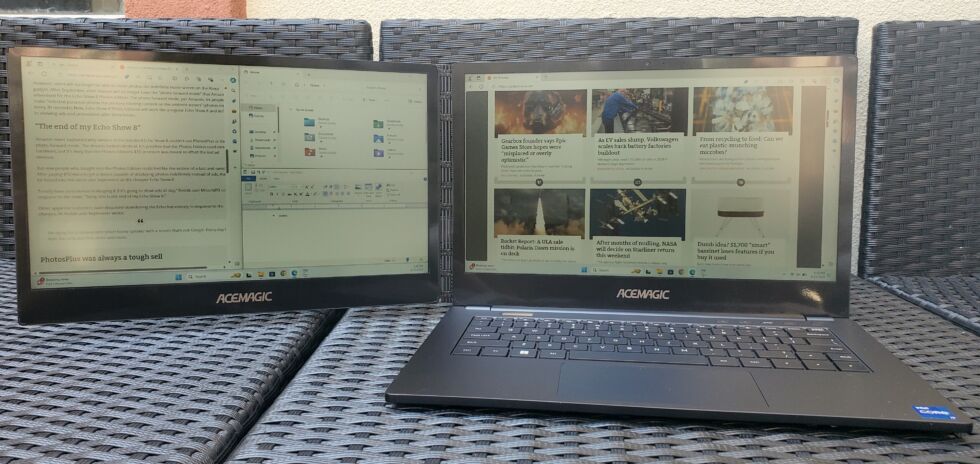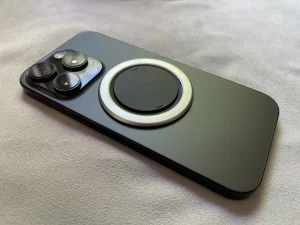Dual-screen laptops make more sense with this spiral notebook-like hinge

On the left is Screen B, on the right is Screen A. [credit:
Scharon Harding ]
As I write this article on the AceMagic X1, two things stand out most. The first is its convenience—being able to write on one screen and view specs and information about the laptop and a chat window on a second integrated screen. The second is that with each aggressive keypress, that convenient secondary screen is jiggling just enough to distract me and rattle my nerves.
I often use sleek, small-screened ultralight laptops, so I find dual-screen laptops intriguing. The dual-screen laptops I’ve used up until this point have come with a huge caveat, though: no integrated keyboard. That’s what makes AceMagic’s X1 stand out to me. Not only does its secondary screen swing out from the system horizontally (instead of vertically), but the laptop manages to include two 13-inch screens and a traditional keyboard and touchpad.
But the somewhat precarious way that Screen B hangs off the left side of Screen A, floating above my tabletop, proves that even an integrated keyboard can’t resolve all the limitations of dual-screen laptop designs.



